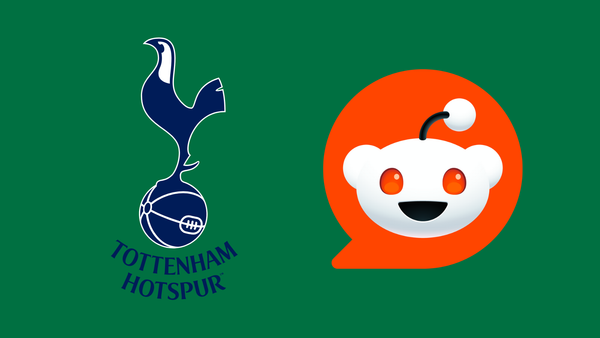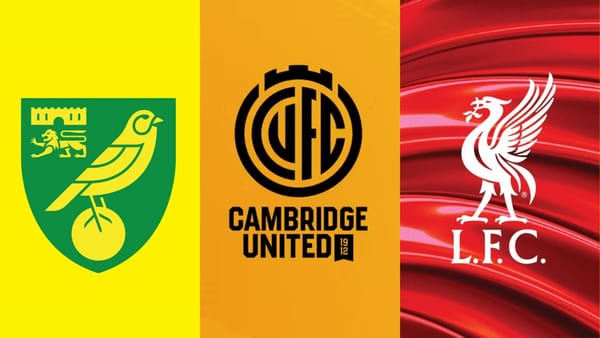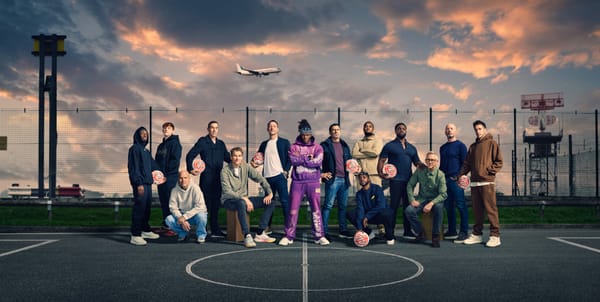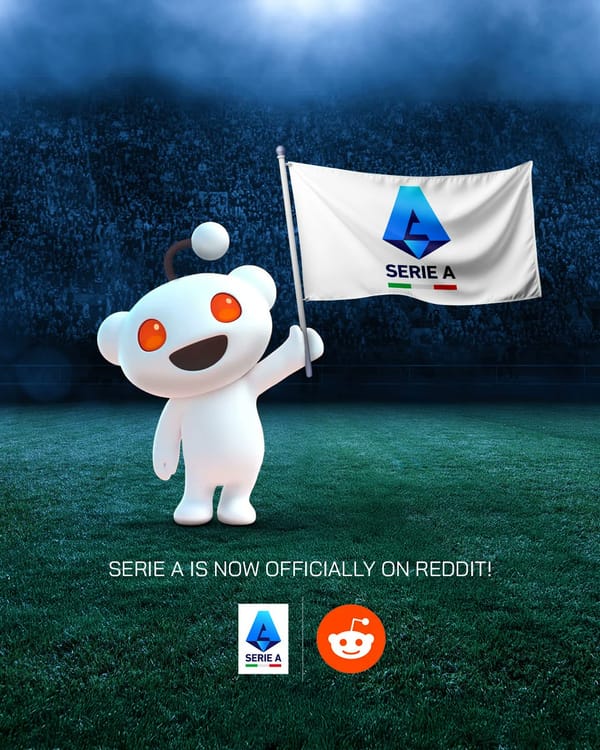The Friday Five: Christian Harrall-Baker, Social Media Consultant at LiveWire Sport
Christian Harrall-Baker faces five questions about his career to date and the sports marketing industry.

The Friday Five is a series of questions about careers and thoughts on the sports marketing industry. The same five questions, just with a different person each time.
This time round we're joined by Christian Harrall-Baker, Social Media Consultant at LiveWire Sport, who is currently working with the Premier League.
How did you first get into the industry?
Like most people, it wasn’t a straight line into the industry. I did a broadcast journalism degree and was interested in TV and Radio at university. I spent a few summers doing internships at PR companies and the like but in my final year, I was the editor of the student magazine and decided to move it online to reflect the behaviours students were taken (and to save on print costs). We did a heavy social media campaign and increased the readership online (from a pretty low base to be fair) by 1,100% at which point I thought “Huh, maybe I can do something in social media”. I’m not a typical sport obsessive but the fanship element of the industry appealed to me.
After leaving university I did a two-week internship at Pitch PR in London and following that was put in touch with Luca at WePlay as he’d recently done some work with Pitch and was just setting up the agency. I got in touch, had a couple of interviews with him and was the second person employed by WePlay, which was an incredible learning curve. Firstly, Luca saw the social content/performance marketing space well before anyone and was very passionate about building the agency. Getting involved in a start-up wasn’t part of the plan but being exposed to that bootstrap culture (we were working from the Google Campus in Old Street basement), getting yourself known, pitching environment was a formative period for me at a time where I was figuring where I wanted to be and what I wanted to do. I was able to work on some cool clients including SportLobster who would go on to become GOAT.
I then moved on to Synergy Sponsorship where I saw the other end of the spectrum in terms of agency life, walking in as a social media exec in one of the best sports marketing companies in the country, off the back of a successful Olympic period, and owned by a highly respected holding group in ENGINE. I got to work with a huge bunch of extremely talented people at Synergy, many of whom are now making their way in other senior roles across the industry and learned more about the brand side and development of mid to long term campaigns. Social was still my bread and butter and we managed to deliver some cool campaigns for the likes of BMW, Accenture, BUPA but I also worked on the 6 Nations, which at the time had the channels owned and managed by sponsors RBS, but in an agency like Synergy you were also exposed to strategy, events and PR so you got a good grounding in general marketing which I now am fortunate to have.
After a few years at Synergy, my partner and I decided to travel for a bit; we’d both gone from school to university, and then straight into work, and wanted to see a bit of the world before life got in the way so we spent nine months travelling. After getting back, I was doing a bit of freelance work for a few agencies, WePlay being one and LiveWire Sport being another, who had picked up the 6 Nations work following RBS’ exit. A role at LiveWire Sport became available where I could be embedded at another long-term client of theirs, the Premier League, which is where I am now as a social media lead.
In my current role, I’m working within the digital team at the Premier League across the various business verticals to make sure social media is embedded as best practice in everything the organisation aims to deliver, while also reaching and engaging a large and global football audience.
What’s the biggest challenge you face in your role?
This is a difficult one. I’m fortunate to work in an organisation that understands the importance of social media. Everyone broadly understands the role it has to play, what it can deliver for them and why it must be done effectively and efficiently. Like most people in a role like mine, I’m sure everyone wants more resource, more money, and more staff, but priorities often lie elsewhere.
I think generally the biggest challenge is probably managing the various stakeholders both internally and externally. The Premier League has a seriously talented bunch of staff where every day brings new challenges. Making the best use of people’s time and making sure efforts and energies aren’t wasted is probably the biggest challenge which, in the grand schemes of things, isn’t a huge deal.
What are you most proud of in your career so far?
I’m going to be annoying here and point to a couple of things over the last 10-12 months that have been delivered across the Premier League owned channels.
At a time of both professional and personal stress for many, we pivoted the accounts during the first lockdown to deliver mental and health wellbeing messaging, explained the various safety aspects of return to football, celebrated Liverpool’s first Premier League title and Man City's fifth, supported the players' desire to highlight racial and societal injustices - culminating in our social media boycott and the humbling chat between Ian Wright and Alan Shearer - and strengthened our relationship with Stonewall in delivering a perception-changing Rainbow Laces campaign. All of which involved more people I can list, people I'm lucky to call colleagues, all of whom gave their all from dining rooms, kitchens and separated two-metres apart in offices. Difficult to be more proud than that.
🏳️🌈 This is everyone's game 🏳️🌈#RainbowLaces pic.twitter.com/hGGopGEB2Y
— Premier League (@premierleague) December 12, 2020
What are your main priorities for the next 12 months?
We’ve got some ambitious growth targets across our key metrics, so working alongside our platform partners to make sure we’re delivering strongly against those is key.
Similarly, continuing to highlight the great work that our clubs are doing in their community during/after lockdowns and then continuing to help celebrate and educate as we welcome fans back to grounds as we move back to the ‘old normal’.
Otherwise, it’s being on hand for whatever else 2021/22 throws at us!
What advice would you give to somebody looking for their first job in sports marketing?
Cliché alert: Nail the basics and make yourself stand out.
I’ll try and summarise that though, and to be clear, sports marketing is a big industry and these are just things that I've seen work and also like...
Nail the basics in terms of CV, covering letter and portfolios. Portfolios aren’t always necessary, but a creative role can help you stand out from the rest. Tailor your CVs and covering letters to your application, which could be tweaked in phrasing and priorities. Make sure your CV looks good, doesn’t have errors, and has a good file name. You’ll be amazed at the number of people who don’t get that right.
If you go down the temporary-to-permanent work route (work experience, internships etc) you can make yourself stand out by doing the basics well. Too often we had work experience/internships who saw that role as the end-goal and when they got to it, took their foot off the gas. If you make yourself useful, people will remember you and fight for you to get a job at the company or put you in touch for other roles with friends they have at agencies who they know are looking for people. Simple things like asking “What format do you want this task done in?”, “When does it need to be done by?”, or completing a bit of the task to check you’re on the right lines before cracking on are all the basics that will set you apart.
Similarly, say yes to everything (within reason!). The awful sounding task? Yes. Someone’s pulled out of five-a-side and the team need a goalkeeper and you’ve never played before? Yes. Does someone need a coffee? Yes. Be painfully enthusiastic.
If you’re applying for permanent roles, bring something to the table which is added spice to your potential role. It could be an Instagram account where you collate your favourite football photography, it could be a blog where you look at great PR stunts, it could be a Twitter account that explores the history of rugby kits. Anything that can demonstrate your knowledge of a platform or the sports industry, and also shows off a bit of personality, will make you memorable.





